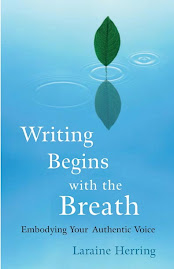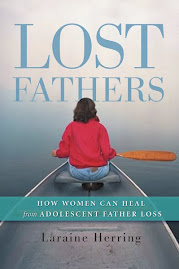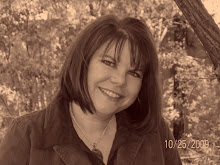
The day before our division meeting this week, my dean asked me if I would prepare a short presentation on how I'm surviving five preps this semester. I said I would, but had to point out the irony in being asked to prep something else to talk about the challenges of prepping. Say that five times fast.
The hardest part of prepping this semester has been keeping all the texts straight. I'm teaching eleven different books. I have lists taped to my computer of what chapter I need to read in what book by what date in order to be prepared for the students. It's OK. I've taught more in a semester than five classes. Frankly, I'm grateful to have a job.
This week, one of my classes was studying The Year of Magical Thinking by Joan Didion. It is a drop-dead gorgeous book, and the timing couldn't have been better. Before we even opened the first day's discussion, several students were already wiping their eyes. My friend Jeffrey had died the previous week and I had thought about postponing the discussion. But what better time to talk about a book about grieving than while I'm grieving?
I love to talk about grief because no one talks about it, and it occurred to me this week in class that I have felt abandoned in many ways because so few will talk about grief with me. So few can bear an open-ended conversation where nothing is fixed or changed -- where emotion just hangs in the air like fog. Where do you find people who will just sit with you while you breathe and not try to fix you or figure out what's wrong or help you move on?
Well, we start to create them in writing and literature classes. Someone writes about their experience from a place of absolute vulnerability. Someone reads the book and then has the courage to talk about their own grief, which opens the space for someone else to talk about their grief, which opens up still more space. Soon, the room is empty and at last we can be real people -- not mothers, daughters, teachers, professionals -- just people. Grief eviscerates us, and when we can face one another with our organs dangling in the air and our bones whiter than our teeth, we can be as present in life as the sparrows.
Literature creates space.
This is Banned Books Week. It's a week of economic turmoil. A week of frightening statistics and unemployment figures and a huge bail out plan that no one understands. Publishing is in crisis (again) and (again) we fear that no one is reading books. Times like these up-end us. They can call into question why we do what we do -- and why we don't do what we don't do. Questioning is good. It leads to self-examination and to growth. But, to quote Natalie Goldberg, "Don't get tossed away." Don't become so unrooted that you succumb to fear. The pull of the pen across the paper in your singular gorgeous hand will root you. As each letter unfolds into the next, you cannot help but be present in the writing. Your writing will show you what is next.
Transitions are required for the next event to occur. It's never been any different than this. When something passes away, something else is born. Attachment to what is passing from our grasp will create suffering. Let go.
A former student of mine, Clint Van Winkle, contacted me earlier this month about his new memoir, Soft Spots: A Marine's Memoir of Combat and Post Traumatic Stress Disorder. I remember Clint very well. He was a student of mine in Phoenix, and had just returned from Iraq when I met him. His publisher sent me an advanced readers' copy and I read the book in a single evening this week. He wrote so authentically about his experiences in Iraq, about his experiences with his own shadow, his own deep deep darkness, that even though I have never, and hope to never, be in a combat situation, I could connect to my own deep deep darkness through the expression of his pain, self-loathing, and trauma. It is a raw book to read. No rah-rah America. No goddamn America. Clint just cut open America and cut open the Marines and the war in Iraq and his own wounded heart and gave it to us between the covers of his book. There is no greater gift.
Literature creates space. Inside us and around us. The more things fall apart, the greater the reconstruction will be. When you are afraid, return to your pen, your breath, your body that for this moment is working perfectly. When you are most afraid, find your path in language. When all around you are holding their breath, release yours.
Stay steady, no matter what rages around you. Stay grounded in your stories. Your poems. Your alive-ness. The time will come when you are not alive on this planet. Make space now, so that your transition will be effortless, just a stroke of your pen from one line to the next.
Space.











1 comment:
This morning I read your blog with a day of space ahead of me finally. I believe in holding space for others to grieve, to figure out changes in life, to just be. Thank you for thsi reminder. I will use my day for me now.
Post a Comment